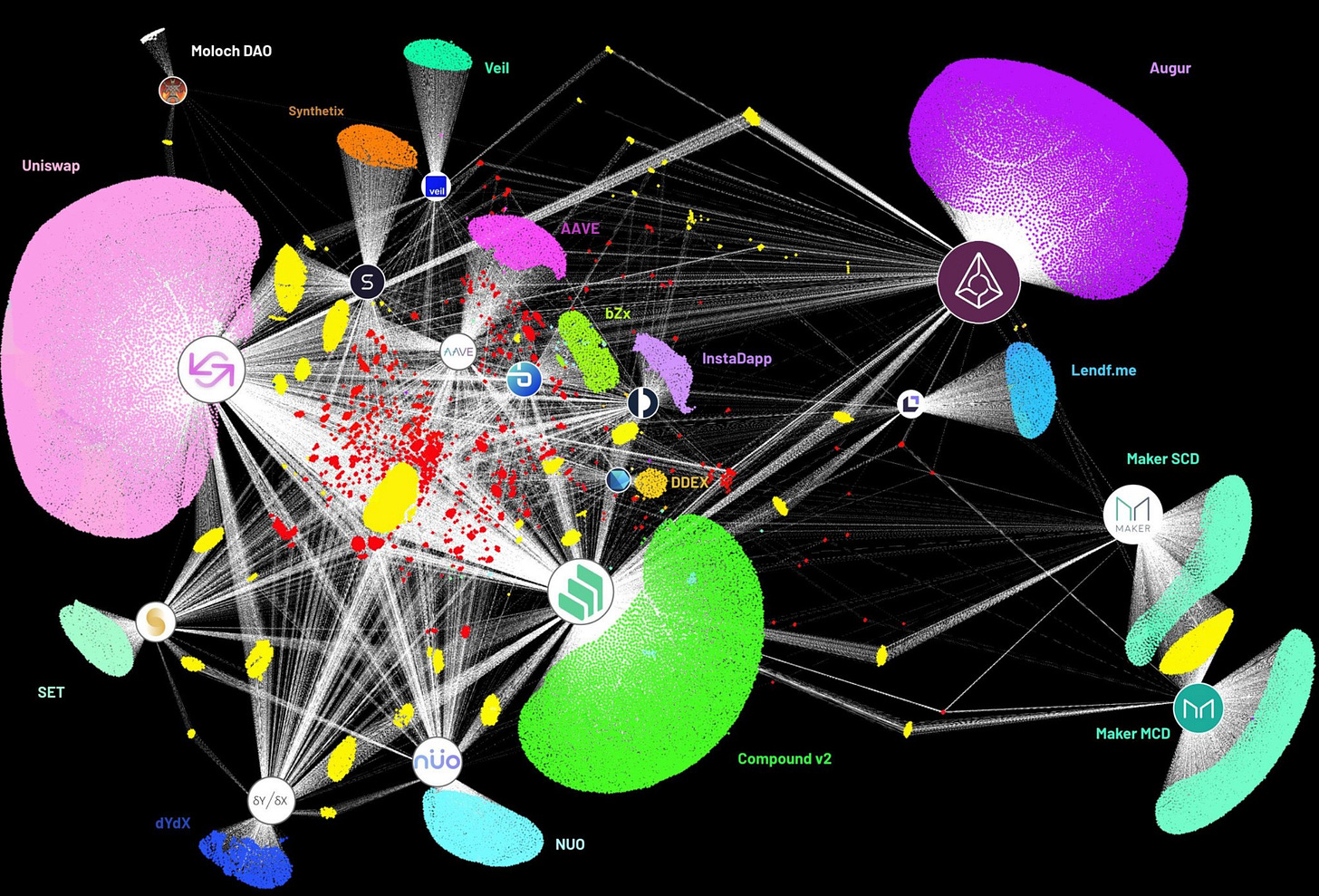The Rise of Protocol Politicians
How will these powerful protocols be governed by the people they serve?
Have you ever thought about how someone can own a domain name? Have you ever wondered how this web page loads? Have you ever been curious about how an email arrives in your inbox? Have you ever pondered how an image is uploaded to the internet?
The Internet protocol suite has a profound impact on our modern life. This set of nerdy acronyms has hugely accelerated our society’s ability to share information. These are the communication protocols that make all of the websites and apps we rely on work.
Today, they are governed by international bodies of engineers, academics, companies, researchers and non-profits. Each protocol has its own community of passionate contributors who are responsible for its success.

These standards allows computers all over the world to talk to each other easily.
Transaction Protocols
I like to think of Bitcoin, Ethereum and other blockchains as transaction protocols. They each have a set of rules that govern how a transaction is defined and distributed. The major breakthrough for transaction protocols is the ability to create something that is both digital and scarce. With communication protocols, you can replicate the data as much as you want. You can duplicate an image or music file and send it to anyone on the Internet. There is no way of preventing the information from spreading through communication protocols.
Transaction protocols are different. They create new kinds of digital property that cannot be duplicated. The transaction ledger prevents that. You cannot cut and paste a Bitcoin.
Protocol Politics
Every protocol involves politics. People have to decide how a system will be designed. Initially, this involves a lot of debate between the people who build it. Eventually, it involves people who are affected by it.
Bitcoin’s protocol was initially defined by a few software engineers on a mailing list. Today, it is a global system that affects millions of people. There are the engineers who maintain it, the miners who secure it, the node operators who run it, the companies who integrate with it and the people who use it. They all have conflicting interests.

The ratification of the Treaty of Münster for Westphalian Sovereignty was the beginning of the modern international state system where governments began to stake out their territory.
Bitcoiners spent the better part of half a decade arguing about whether to increase the block size from 1 megabyte to 2 megabytes. This was an incredible display of protocol politics at work. Companies and miners tried to collude to control the protocol. The people rose up and said “no”.
Global Governance

The Ethereum protocol is unstoppable and processes transactions from any jurisdiction.
Protocols that can be accessed over the Internet are global from day one. They run above the state lines and do not comply with laws. Politicians who govern plots of land may wish to impose their will upon these protocols, but they are not able to. They are reduced to applying laws to the people who use them.
China has tried incredibly hard to clamp down on the Internet but it has not been able to censor it completely. Countries have tried to ban Bitcoin but they have failed. These protocols permeate into every corner of our global society.
Over time, I expect that the governance of these systems will start to have enormous impact on huge numbers of people. Protocol politicians will make decisions that have huge ramifications for people everywhere.
Plutocracies & Proxies
The fastest-growing protocols today are a collection of decentralised financial (#DeFi) protocols being built on top of Ethereum. With Bitcoin, the rules are fairly simple: Count to 21 million coins and stop at some point. This does not require active governance decisions to be made on a monthly basis.

The growth of these systems is really impressive. They have found protocol-market fit.
The new class of financial protocols are much more sophisticated. These systems often require human input to adjust certain variables. These can be adjusted based on votes from token holders. For example, the MakerDAO Governance system allows holders of the $MKR token to vote on the interest rates of their lending protocol.

You can follow the protocol politics in the Maker Governance Forum.
Today, you need to have a lot of the Maker token to have an impact on the protocol. This has two effects: small holders are not incentivised to vote and large holders have an enormous influence on the protocol. This has lead many people to criticise the protocol by calling it a plutocracy.
In the traditional financial system, these kinds of issues have already been thought through. Proxy voting is extremely common. If you hold stock in a company, it is highly unlikely that you have the time or energy to vote during in their corporate governance process. Instead, you delegate that vote to people who represent your interests when interacting with the company’s board. Similarly, when you vote for a politician, you delegate them the power to decide on your behalf.
Delegating your token’s voting power to a protocol politician is about to take off.
Professional Protocol Politicians
Today, the Compound Protocol is launching their governance system. Compound is a money market that lives on Ethereum. You can deposit assets there to earn interest or borrow money at a variable rate. It is one of the most powerful and professionally run protocols in the ecosystem.


They have embraced the proxy voting pattern from day one and baked it right into the protocol. Protocol politicians will need to gather 1 million $COMP token votes before they can have an impact. This is going to usher in a new class of professional protocol politicians who are going to try and steward the protocol to growth.



I think these positions will become incredibly coveted over time. I want to become a protocol politician because I believe I can help people benefit from these protocols in lots of ways. This is going to be a fascinating exercise in digital politics.

You can follow my attempts to gather votes on the Compound Protocol by heading here.




Really Interesting perspective